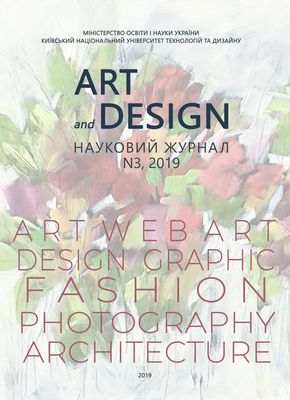ARTISTIC-FIGURATIVE SIMULATION IN BIODESIGN
DOI:
https://doi.org/10.30857/2617-0272.2019.3.6Keywords:
design, architecture, image, nature, bioprototype, modeling, visual perceptionAbstract
Expanding the creative possibilities of designers, architects by implementing the methodological foundations of artistic-figurative modeling of rational, from the point of view of practical use, natural analogues. The development of the theoretical foundations of modeling natural prototypes with an emphasis on the reproduction of their artistic and compositional features in design, architecture. The proposed methodology for the implementation of rational features of natural forms in the field of design and architecture is based on the principle of analogies of formation in nature, design, architecture. A feature of the technique is the synthesis of sensory and logical in the creative search for innovative, creative solutions in design and architecture. The article presents the feasibility of a bionic approach to the transformation of rational natural samples into the field of design and architecture in the initial stages of design. The value of artistic-figurative modeling in the creative process of designers, architects is grounded. It consists in the implementation of artistic-figurative modeling in the bionic process, which accelerates the search for innovative solutions in the design of design objects, architecture, since the natural analogue is a formed model of the target object in design and architecture. The implementation of artistic-figurative modeling in biodesign allows to optimize the design process by reducing the time, material resources when searching for the idea of a future design object, architecture. Artistic-figurative modeling in biodesign helps to harmonize the natural and artificially created environment.Downloads
Download data is not yet available.
Downloads
Published
2019-12-05
How to Cite
Кащенко, О. В. (2019). ARTISTIC-FIGURATIVE SIMULATION IN BIODESIGN. Art and Design, (3), 58–63. https://doi.org/10.30857/2617-0272.2019.3.6
Issue
Section
Articles

